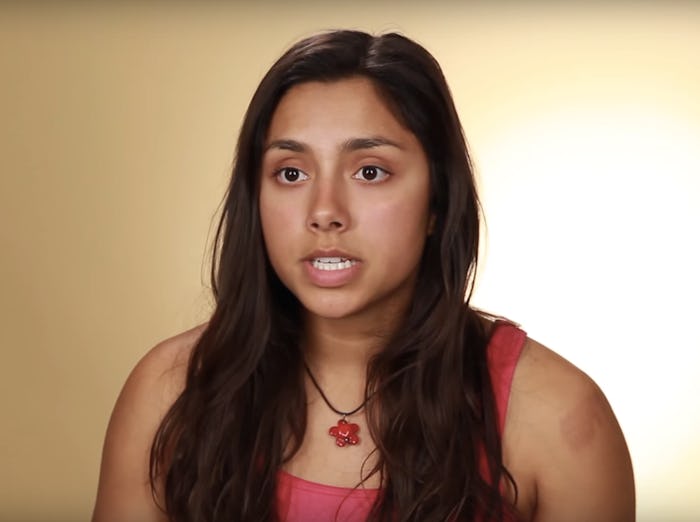Life

Multiracial And Adopted People Share What It’s Like Not To Look At All Like Your Parents — VIDEO
When children wonder what they might look like when they grow up, they often look to their parents. But what happens when a child has a mixed racial composition, or is adopted? In these situations, kids might end up with more questions about their identity than answers. Then there’s the possibility (and probable reality) of people commenting on why they don’t look like their parents, or mistakenly thinking that their parents aren't actually their parents at all. It can often lead to uncomfortable situations and even hurtful comments made by others. I have already encountered this a few times as my own son is multi-racial (white and Latino), and have had people comment about how much he must take after his dad (since he is much whiter than I am, with light eyes and hair, contrasting my own dark features). These certainly aren't the easier or most positive moments to navigate as a parent, and I have to assume they're even harder on kids.
Truth is, it shouldn’t matter whether or not we look like our parents, or like our children. In this Buzzfeed video, a group of mutli-racial and adopted adults reflect on what it was like for them growing up not looking like the rest of their family. Their answers might give you some pause on how you might react the next time you meet a young child that isn’t the spitting image of their mom or their dad.
They Were Often Asked Why They Didn’t Look Like Their Parents
One woman reflects on the invasive questions posed to her by her fellow classmates as to why she and her mom had different skin color, and how that was the first time she began to wonder why as well.
...And Others Automatically Made Assumptions About Who Their Parents Actually Were
This young man tells of how strangers automatically assumed his mother was Asian when they saw him as a child. He is actually Latino, and was adopted by his Caucasian mother and father.
One Girl Was Even Told She Was Adopted When She Wasn’t
She tells of how the kids in her elementary school said it was impossible for her to be her white mother’s daughter, which was clearly frustrating for her when she knew she wasn’t. While her mother’s side is white, her father’s side of the family is Indian.
But The Rude Comments Didn’t Stop There
One woman was told she wasn’t “really black” because she grew up with an all-white family, while this person was told she was “basically white,” washing over her mixed heritage.
Figuring Out Personal Identity Was Always Difficult
Some felt like their were being discouraged from certain aspects of their own heritage, like this man who often felt like his white, adoptive parents were discouraging him from “being too much of a black guy.”
Especially When The Parents Didn’t Share Their Culture Much With Them
This woman was not only upset about not fitting in, but also angry that her parents didn’t teach her about “being indian or being white,” which she felt would have helped her figure out her own identity. Another guy that was interviewed discusses how he wishes he were more connected to his Latino heritage and spoken Spanish, but it seems his white, adoptive parents didn’t think to teach him more about it.
Which Can Result In A Lot Of Confusion
This father was surprised when he asked his children what they identified as, and rather than replying with one or more parts of their background (Latino, Asian, Black), they reply with, “White.” He quickly and positively explained to them that they were of mixed background. He even said it helped facilitate additional conversations about race, ethnicity, and culture.
But Certain Things Did Help, Like Early Discussions Of Adoption And Letting Kids Know How Loved They Are
Knowing about adoptive status early on helped this man in understanding his identity and why he didn’t look like his parents. More importantly, these discussions did not detract from the way in which his family made him feel included. Another man tells of how his adoptive mom would explain, “We really wanted to have a kid and we were lucky enough to find you,” which is a great way of explaining it. He goes on to say that although it didn’t explain why they all looked different, it definitely let him know that he was loved.
Watch The Full Video Below
Images: YouTube (10)